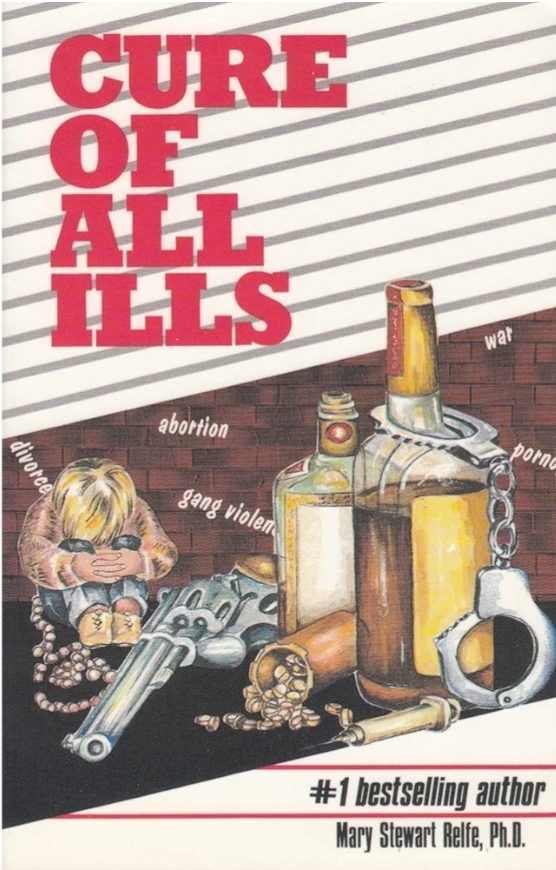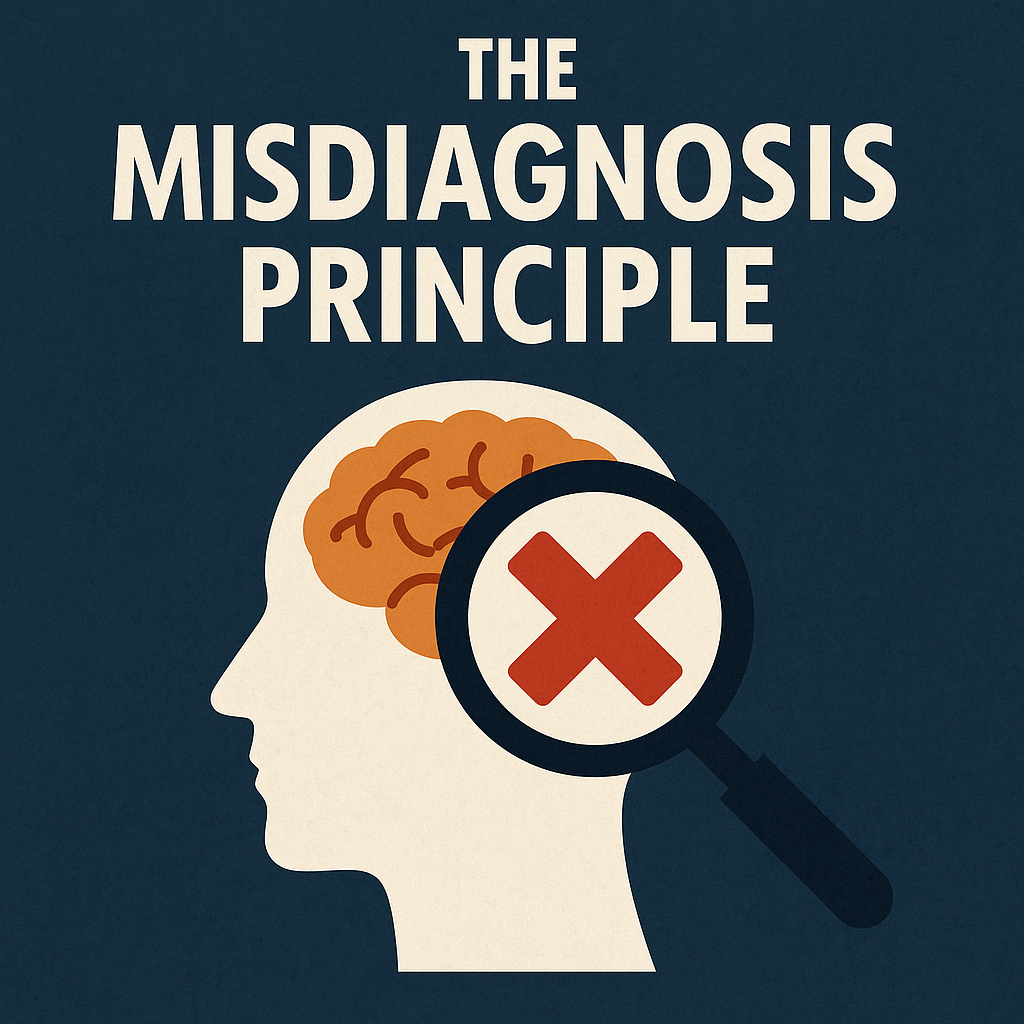Mary Stewart Relfe’s Cure of All Ills (1986) is a book that examines the role of spiritual and biblical principles in addressing human suffering, illness, and societal decay. It presents a theological perspective on how individuals and communities can achieve holistic healing—spiritually, emotionally, and physically—through alignment with God’s will and adherence to biblical teachings. Below is an in-depth exploration of the themes, arguments, and context of the book.
Central Premise: Spiritual Roots of Illness and Healing
Relfe argues that the ultimate “cure of all ills” lies in a return to God, both individually and collectively. She emphasizes that many forms of suffering—whether personal or societal—stem from a spiritual disconnect rather than purely physical or external causes. Her thesis is grounded in a biblical worldview, with a focus on the transformative power of faith, repentance, and divine guidance.
Key Themes
A. Sin and Its Consequences
- Relfe explores the biblical concept that sin is at the root of much human suffering. She argues that disobedience to God’s commandments leads to spiritual, emotional, and even physical ailments.
- Drawing on scriptures like Romans 6:23 (“For the wages of sin is death…”), Relfe asserts that healing and restoration are contingent on repentance and a renewed relationship with God.
B. Holistic Healing
- The book advocates a holistic approach to healing, addressing the spiritual, emotional, and physical dimensions of human existence.
- Relfe points to biblical examples where faith and obedience led to miraculous healings, emphasizing that spiritual alignment can have tangible effects on physical well-being.
C. Faith and Healing
- Relfe highlights the power of faith as a cornerstone of healing. Drawing from verses like James 5:15 (“The prayer of faith shall save the sick”), she argues that faith is not only a means of spiritual salvation but also a source of strength and recovery in times of illness or adversity.
D. Societal Healing
- Beyond individual health, Relfe examines the broader implications of spiritual disobedience on societies. She discusses how moral decay, economic instability, and global conflicts can be traced back to a collective departure from biblical principles.
- She calls for national repentance and a return to Judeo-Christian values as the pathway to societal restoration.
Practical Steps for Healing
Relfe outlines specific actions individuals and communities can take to achieve healing and wholeness. These include:
A. Repentance and Reconciliation
- Personal and collective repentance is emphasized as the first step toward healing.
- Relfe encourages readers to seek forgiveness for sins, reconcile with others, and align their lives with God’s will.
B. Prayer and Faith
- Prayer is presented as a powerful tool for healing, both spiritually and physically. Relfe advocates for earnest, faith-filled prayer as a means of inviting divine intervention.
- She also emphasizes the importance of unwavering faith, even in the face of adversity.
C. Adherence to Biblical Principles
- Living according to biblical teachings is portrayed as essential for maintaining health and avoiding the pitfalls of sin.
- Relfe highlights specific principles, such as observing moral laws, practicing forgiveness, and engaging in acts of service.
D. Trust in Divine Providence
- A central message of the book is the importance of trusting God’s plan, even when circumstances seem dire. Relfe reassures readers that healing and restoration are possible through reliance on God’s wisdom and timing.
Biblical Foundations
Relfe draws extensively from scripture to support her arguments, offering both well-known and lesser-cited verses to illustrate her points. Key passages include:
A. Spiritual Healing
- “He heals the brokenhearted and binds up their wounds.” (Psalm 147:3)
This verse underscores God’s role as the ultimate healer, addressing both emotional and physical suffering.
B. Faith and Action
- “Faith without works is dead.” (James 2:26)
Relfe connects faith with action, urging readers to demonstrate their trust in God through repentance and righteous living.
C. National Restoration
- “If my people, who are called by my name, will humble themselves and pray and seek my face and turn from their wicked ways, then I will hear from heaven, and I will forgive their sin and will heal their land.” (2 Chronicles 7:14)
This verse forms the basis of Relfe’s call for societal repentance, emphasizing the connection between spiritual renewal and national healing.
Broader Implications
Relfe’s Cure of All Ills is not just about individual health but also addresses the spiritual and moral decline she perceived in modern society. She warns against materialism, moral relativism, and technological advancements that she believed were leading humanity away from God.
A. Critique of Modern Medicine
- While not outright dismissing medical science, Relfe critiques an overreliance on technology and pharmaceuticals, arguing that these often address symptoms rather than root causes.
- She advocates for a complementary approach that integrates faith and spiritual practices into health care.
B. Societal Challenges
- Relfe identifies issues like economic disparity, political corruption, and environmental crises as symptoms of a deeper spiritual malaise.
- She calls for collective repentance and a return to ethical governance rooted in biblical principles.
Reception and Legacy
Relfe’s Cure of All Ills was received with mixed reactions. While embraced by Christian audiences seeking spiritual guidance, it also faced criticism for its perceived oversimplification of complex issues.
A. Praise
- Many readers found the book inspiring and practical, appreciating its emphasis on faith and repentance as pathways to healing.
- Its holistic approach resonated with those seeking alternatives to purely secular or medical frameworks.
B. Criticism
- Critics argued that Relfe’s views on illness and societal problems placed too much emphasis on spiritual causes, overlooking the roles of science, economics, and systemic factors.
- Others questioned whether her interpretations of scripture were overly literal or applied too broadly.
Modern Relevance
The themes of Cure of All Ills remain relevant in contemporary discussions about the interplay between faith, health, and societal well-being. The COVID-19 pandemic, for example, has reignited debates about the role of faith in healing and the balance between spiritual and scientific approaches.
A. Renewed Focus on Holistic Health
- Relfe’s emphasis on addressing spiritual, emotional, and physical dimensions of health aligns with modern holistic health movements.
B. Societal Healing
- The book’s call for national repentance and moral renewal resonates with ongoing discussions about societal polarization, inequality, and ethical governance.
Conclusion
Mary Stewart Relfe’s Cure of All Ills offers a faith-based perspective on healing and restoration, rooted in biblical principles. While its interpretations and solutions may not resonate with all audiences, the book’s central message—that spiritual renewal is essential for holistic healing—continues to inspire individuals and communities seeking hope and transformation in challenging times.







